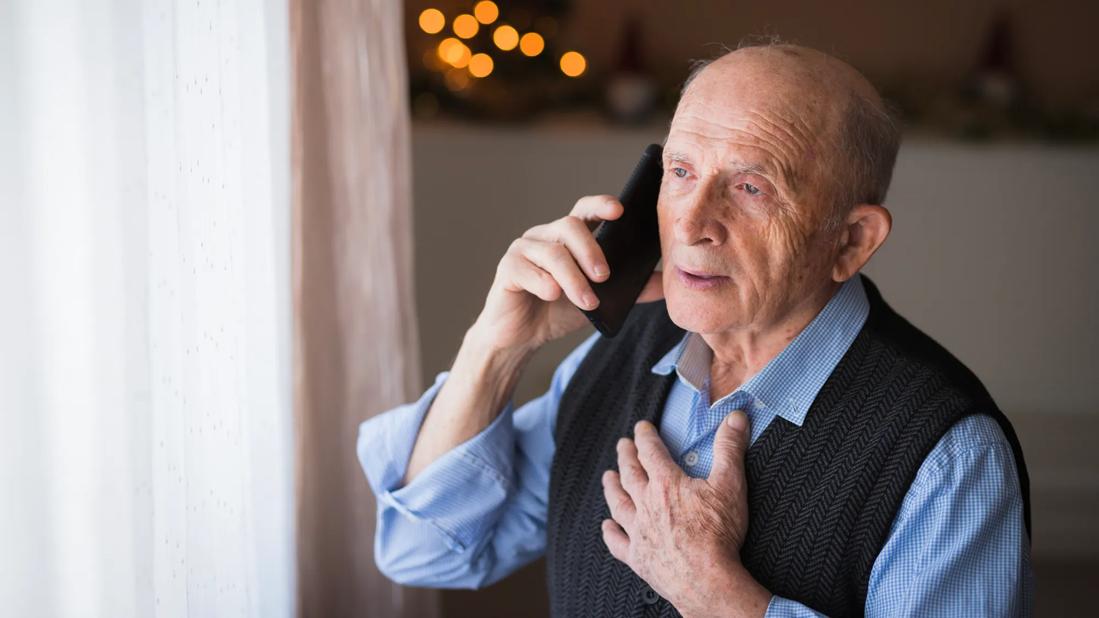There’s no way to stop a heart attack on your own — call for help immediately

Image content: This image is available to view online.
View image online (https://assets.clevelandclinic.org/transform/405e30ca-9332-470e-8d00-fda3c8a01c09/calling-emergency-1423140753)
Person holding upper chest, on the phone near window
Have you ever heard that home remedies like “cough CPR” can stop a heart attack as it’s happening?
Advertisement
Cleveland Clinic is a non-profit academic medical center. Advertising on our site helps support our mission. We do not endorse non-Cleveland Clinic products or services. Policy
We hate to be the bearers of bad news, but that’s a myth — and so is every other claim that you can nip a heart attack in the bud after it begins.
A heart attack results from a lack of blood flow to your heart. This is usually due to coronary artery blockages. Without a steady supply of blood (and the oxygen it carries), areas of your heart muscle can start to die. The longer a heart attack goes on, the worse the damage. That’s why you might hear the phrase, “Time is muscle.” Every minute matters.
While a quick fix at home might sound appealing, it’s simply not possible. You need medical intervention right away.
Cardiologist Andrew Higgins, MD, explains what to do and what not to do if you think you or someone is having a heart attack.
If you have heart attack symptoms, the most important thing you can do is seek medical attention. Symptoms vary by person, but they often include chest discomfort, shortness of breath, nausea and profuse sweating.
“Time is critical,” Dr. Higgins stresses. “The sooner you get treatment, the better the chance of survival and less damage to your heart.”
Here’s what to do if you think you’re having a heart attack:
Advertisement
What about if you’re with someone who’s having a heart attack?
“The recommendations don’t change,” Dr. Higgins says. “Activation of emergency services is still the crucial first step. You need care at a hospital, and you need it fast.”
Only a healthcare provider can restore blood flow to your heart, effectively stopping a heart attack. This often requires a procedure, like percutaneous coronary intervention (PCI) or coronary bypass grafting (CABG).
We can’t emphasize this enough: You can’t stop a heart attack on your own.
If you or someone you’re with is having a heart attack, do NOT:
If you think there’s even a chance you’re having a heart attack, call for help. It’s important to act fast.
“When you suspect a heart attack, don’t delay calling for help in hopes of the symptoms resolving on their own,” Dr. Higgins reinforces. “Such delays increase the risk of severe heart damage or death.”
As with any health issue, knowledge is power. Learning as much as you can about heart disease and the early warning signs of a heart attack can help you make that call without delay.
Advertisement

Sign up for our Health Essentials emails for expert guidance on nutrition, fitness, sleep, skin care and more.
Learn more about our editorial process.
Advertisement
Strokes affect your brain, while heart attacks affect your heart — both can be life-threatening emergencies
Healthy choices involving food, exercise and more can help reduce your risk
Recognizing subtle symptoms, like unusual fatigue or fleeting episodes of chest pain, could be key to survival
Common symptoms include chest discomfort, shortness of breath, nausea and profuse sweating
Calling 911 or emergency services should always be your first step
Mild heart attacks may cause less damage, but they can still lead to serious complications and require medical attention
Congenital heart disease, genetic conditions and unhealthy lifestyle habits can put teens at higher risk for heart attack
Absolutely! In fact, in many ways, exercise is key to recovery
Although it could be used as a moisturizer, this new trend is not recommended
Communicating clear limits helps protect your time, energy and emotional well-being
High cholesterol can be genetic, but testing and treatment can lower your heart disease risk